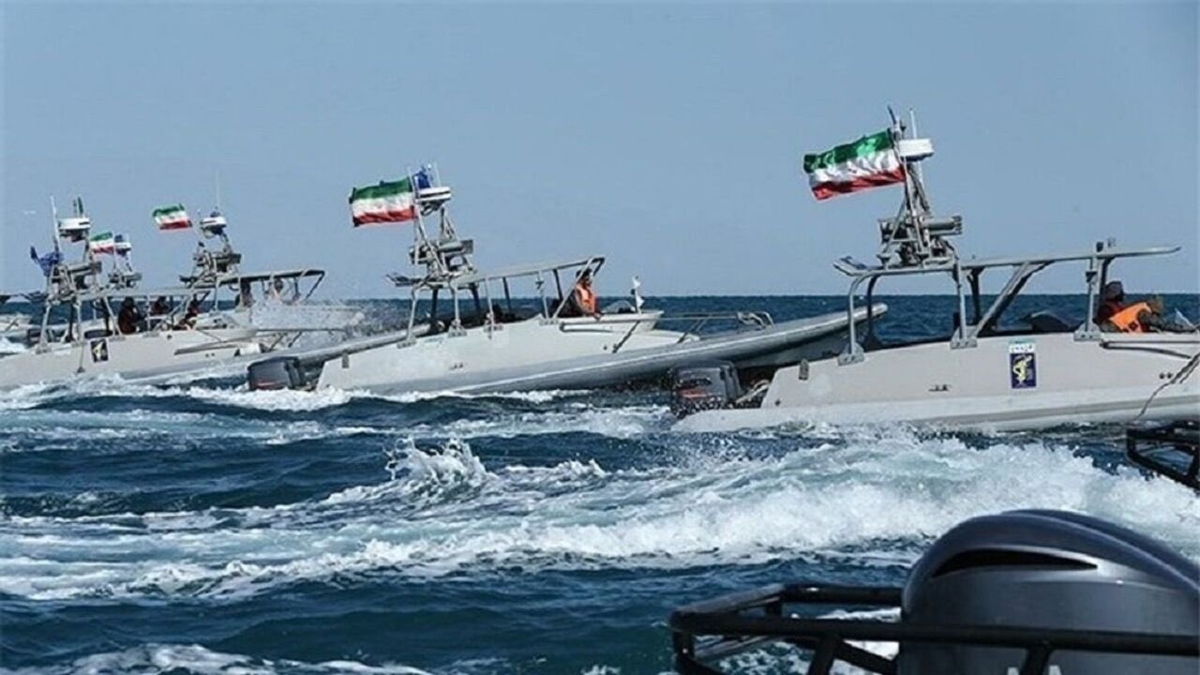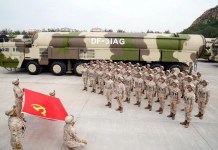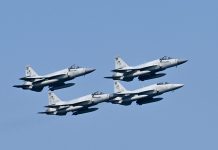No serious student of Islamic history is convinced that the Beijing-brokered accord between Iran and Saudi Arabia is workable.
The intricacy of the Iranian mind reflects her split personality. The question “Who am I” is still haunting the Iranian psyche ever since the pre-Islamic Zoroastrian kingdom of Sasanians fell to the Arabs in the battle of al-Qadisiyyah in CE 636.
Because a well-developed civilization of Aryan origin had raised a vast and fabulous empire cantered in a geographically prosperous and historically strategic region in the Asian continent and was decimated by the uncouth desert warriors from Arabia, the Iranian nation passed on from experiential sovereignty to psychological subjugation.
Hostility Towards Israel
Iran’s physical borders do not touch on those of Israel. The two countries do not share natural resources. There is no competition in trade and commerce between them, and they are located far away from each other.
Why, then, does Iran nurse unbounded hatred and animosity for Israel? This is an intriguing question and has to do more with Iran’s split personality and psychological sickness.
After being defeated by the Arab Muslims and culturally delinked from pre-Islamic civilization, the Iranians, owing to their quality of ingenuity, tried to reverse the process of history and prove to the Muslim Arabs that they were better Muslims than any Arab Islamic country.
The Muslim world could not prevent the European colonial powers from carving out a homeland for the Jews called Israel, therefore Iran had undertaken the Quranic mission of decimating the Jews and destroying the State of Israel, thereby proving to the Arab world that a proselytized Iran is more Islamic that even the birthplace of Islam.
Al Aqsa Mosque has been profiled as the icon of the Islamic land given to the new state called Israel. So, Iran’s mission about the Zionists and the State of Israel is what is said in the Quran.
Attack By Hamas
Hamas is Iran’s proxy, and the Sunday surprise massive attack by Hamas terrorists is, in essence, the Iranian attack on the US.
In an interview with NBC News Lester Holt last month, Iranian President Ebrahim Raisi said, “We are against any bilateral relations between our regional countries and the Zionist regime.” It is a reference to Israel. Raisi added, “We believe that the Zionist regime is intending to normalize bilateral relations with the regional countries to create security for itself in the region,” reported NBC News on October 8.
The Iranian President wants to convey that Iran will not only disallow the bilateral relations between Saudi Arabia and Israel but will also disallow any other country in the region trying to establish normal relations with Israel.
The hint is towards the UAE, which has already opened channels with Israel, and also Bahrain and some more littoral countries in the Middle East region that are said to be contemplating opening channels with Israel.
It means that Iran is throwing a challenge to those countries in the region that are likely to attempt to establish relations with Israel.
President Raisi might be thinking of deterring them through the use of force. This explains the reason why Hamas has made a sudden and unexpected attack inside Israel which has taken the lives of nearly three hundred innocent Israelis and wounded more than 200.
Never in history have we heard a regional power so brazenly warning its neighbors on all sides not to do something that it does not want to do. This mentality is far worse than the mentality of the colonialists or even the Nazis.
Ramifications
Iran thinks it has reasons to be brazenly aggressive. One can also attribute its proxy’s attack on Israel to Iran’s utter frustration. It is reported that in the bargain of winding up traditional animus against Israel, the Saudi Crown Prince would like the US to provide him with a nuclear facility.
It is not clear how the US will react to that demand, but one thing can be said with a fair amount of certainty. It shows that despite the Beijing-brokered accord, Saudi Arabia continues to hold on to the fear that Iran is fast developing her nuclear capability, particularly after the nuclear treaty between Iran and the Western countries was quashed by the former President of the US and no headway has been made in Vienna talks.
The words of Iranian President Raisi cited above carry a subtle threat as we are receiving constant news of Iran moving towards achieving nuclear capability sooner rather than later.
Israel will retaliate at its time and convenience; perhaps it has already begun retaliation. The question is, what will be Netanyahu’s target? He said that it was a war and, not least, just a disaster. But in the war against whom, the real mastermind or just the proxy?
Using a proxy is a new stratagem of contemporary diplomacy. Pakistan uses Hafiz Saeed and Gupkar Gang as its proxy in Kashmir; Iran uses Hamas and Hezbollah; the US uses Zelensky in Ukraine, and lately, some even believe that Washington could be using Trudeau to corner India.

The second factor that has to be taken into account while analyzing the Hamas attack is the new corridor proposed during the G-20 meeting in New Delhi.
This sea and land corridor, supposed to connect Mumbai to Europe via Saudi Arabia and Israel, is said to paralyze China’s CPEC Project. Iran thinks this corridor is going to reduce the commercial importance of Chabahar port and also the Sirakhs (in Turkmenistan) connection to the Central Asian region.
Iran would not want Israel to be connected to its strategic circuit.
Conclusion
Iran is playing a very dangerous game that might boomerang on her at any moment. Perhaps she has taken the risk of a suicidal adventure, thinking that she is close to becoming a nuclear power but forgetting that she is not taking into account its consequences.
The truth is that Iran has been a country at war with its people ever since the theocratic regime’s crackdown on Iranian women, in particular after the murder of a Kurd girl in police custody.
Ever since, there has been no relent in the oppression of Iranian women by the theocratic regime. That event has isolated Iran, and even the little progress that had been visible in the Vienna nuclear talks has receded. It could be possible to press other options into service for denying Iran a nuclear facility for the sake of international peace and order.
- KN Pandita (Padma Shri) is the former director of the Center of Central Asian Studies at Kashmir University. Views Personal.
- Mail EurAsian Times at etdesk(at)eurasiantimes.com
- Follow EurAsian Times on Google News




